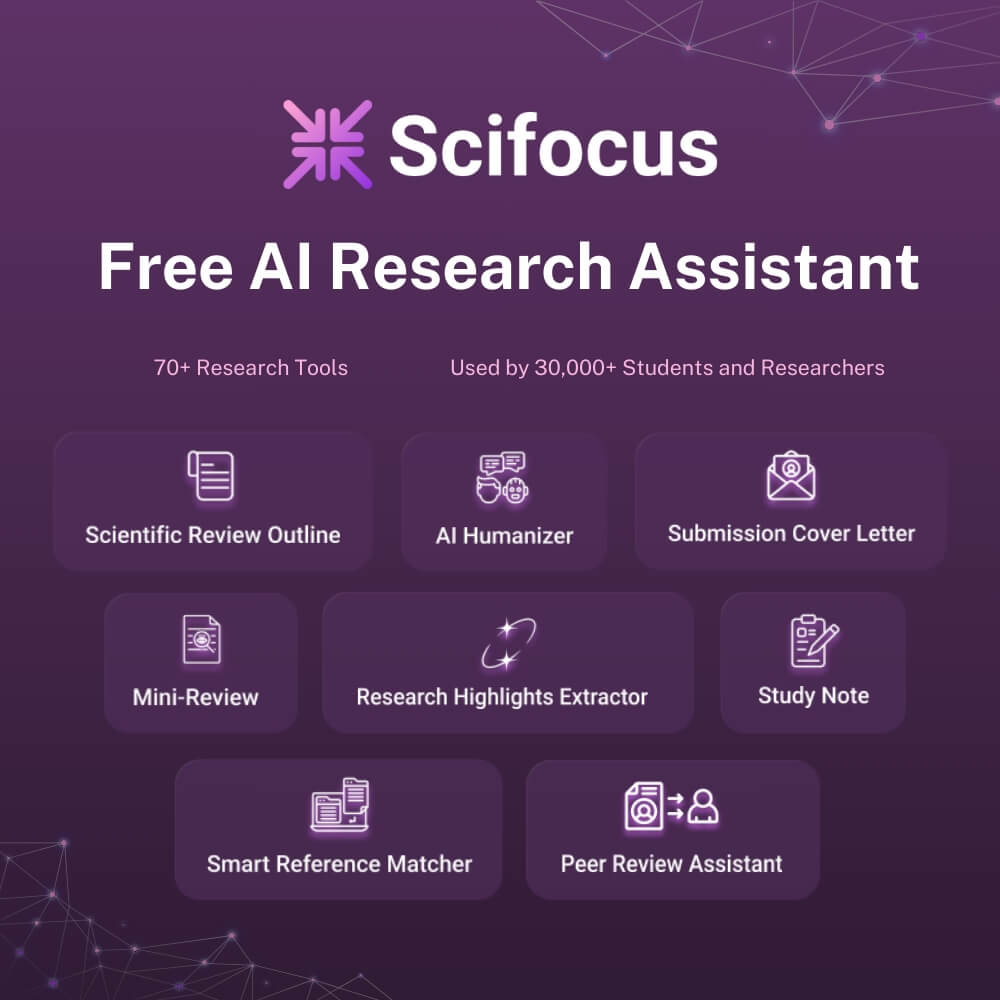How to use the Paraphraser for Academic Tool

What is academic writing?
According to the academic writing definition, it is a structured and formal style of writing used in academic texts such as academic journal articles. Academic writing is not only the foundation of knowledge dissemination but also a crucial skill for publishing high-quality work. A proficient academic writer must master clarity, precision, and proper citation. However, many researchers struggle with repetitive phrasing, unclear expressions, or failing to meet journal standards when writing for academia. To address these challenges, Scifocus has developed Paraphraser for Academic, an advanced tool designed to refine and enhance scholarly writing.
In this blog, you will learn essential writing tips to improve your academic writing skills and understand how to use Scifocus’s Paraphraser for Academic to seamlessly transform your work into a more polished, scholarly version.
How to use the Paraphraser for Academic Tool?
To help you master academic writing, we’ve prepared a step-by-step video tutorial
Academic Writing Examples
Writing for academia requires precision, clarity, and a formal tone. Instead of using basic words and repetitive phrases, Scifocus’s Paraphraser for Academic helps you refine your writing instantly by replacing common expressions with sophisticated academic vocabulary. Here’s how you can enhance your essays:

1. Replace “On the other hand” → “Conversely”
✅ Basic: Climate policies reduce emissions. On the other hand, critics argue they stifle economic growth.
✅ Improved with Scifocus: Climate policies reduce emissions. Conversely, critics argue they stifle economic growth.
🔹 Why? "Conversely" introduces a counterargument with more authority.
2. Replace “Says” → “Asserts”
✅ Basic: Smith (2023) says the data is flawed.
✅ Improved with Scifocus: Smith (2023) asserts the data is flawed.
🔹 Why? "Asserts" conveys confidence and strength in argumentation.
3. Replace “Has many parts” → “Multifaceted”
✅ Basic: This issue has many parts.
✅ Improved with Scifocus: The multifaceted** nature of income inequality requires interdisciplinary analysis.
🔹 Why? "Multifaceted" enhances clarity and sophistication in complex discussions.
4. Replace “Area” → “Realm”
✅ Basic: This discovery reshapes our understanding of the quantum area.
✅ Improved with Scifocus: This discovery reshapes our understanding of the quantum realm.
🔹 Why? "Realm" adds academic depth and variety to descriptions.
5. Replace “Despite” → “Notwithstanding”
✅ Basic: Despite these limitations, the study provides critical insights.
✅ Improved with Scifocus: Notwithstanding these limitations, the study provides critical insights.
🔹 Why? "Notwithstanding" maintains academic formality while acknowledging exceptions.
Automate Academic Elegance with Scifocus’s Paraphraser

Instead of manually searching for better vocabulary, let Scifocus’s Paraphraser for Academic refine your writing in seconds. Simply:
1️⃣Enter any text you wish to transform into academic style.
2️⃣ Click 'Generate' to start the paraphrasing process.
3️⃣ Review the results and directly integrate the refined content into your research papers or projects.
The Types of Academic Writing
| Type | Definition |
|---|---|
| Essay | A relatively short, self-contained argument, often using class sources to respond to an instructor's question. |
| Research Paper | A more in-depth investigation based on independent research, usually on a topic chosen by the student. |
| Thesis/Dissertation | A large final research project at the end of a degree program, typically on a topic of the student’s choice. |
| Research Proposal | An outline of a potential research topic and plan for a future dissertation or research project. |
| Literature Review | A critical synthesis of existing research on a topic, usually written to inform a new study. |
| Lab Report | A structured write-up of a lab experiment, including aims, methods, results, and conclusions. |
| Annotated Bibliography | A list of source references with brief descriptions or evaluations of each source. |
Academic Writing Across Disciplines:
- Scientific Writing focuses on clear and accurate reporting of methods and results.
- Humanities Writing emphasizes constructing persuasive arguments using textual evidence.
Regardless of your goal—passing your degree, applying to graduate school, or building an academic career—effective academic writing is an essential skill.
Conclusion
Leveraging AI tools to enhance academic writing efficiency has become a growing trend, and Scifocus is here to be your trusted assistant in accomplishing research and writing tasks. In addition to our Paraphraser for Academic tool, Scifocus also offers a range of other useful features like the Essay Writer, Paragraph Generator, Abstract Generator, and Citation Generate Tool, all designed to help you refine your work and ensure its quality and accuracy.
Whether you're looking for inspiration or aiming to improve the readability of your paper, Scifocus has you covered with smart assistance. Sign in with Google to explore Scifocus' full suite of academic tools today and make your research writing more efficient and effortless!
Did you like this article? Explore a few more related posts.
Start Your Research Journey With Scifocus Today
Create your free Scifocus account today and take your research to the next level. Experience the difference firsthand—your journey to academic excellence starts here.
